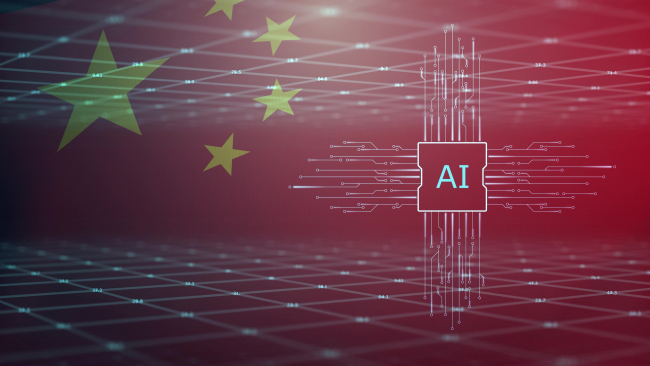The 4th TICAD: acceleration of Japan-Africa cooperation

On 28-30th May 2008, the fourth Tokyo International Conference on African Development (TICAD) was held in Yokohama. This initiative, co-organized by UN, UNDP and the World Bank, was set up in 1993 and takes place every five years, aims to develop dialogue between African and Japanese leaders but also countries and International organizations involved in Aid. This fourth conference brought together delegations from 51 African countries including 40 Heads of States and Governments. The scale of the conference and the importance of the announcements made there illustrate the continuing Japanese interest towards Africa.
Since 1993, the successive TICADs proposed a global framework for co-operation between African countries and their Aid partners. The three former conferences allowed Japan to build stronger relationships with African countries. To improve these links, Tokyo has developed its own approach towards Sub-saharan Africa, which is different from other Western powers and based on the fact that Japan previously received Aid and also on the experience of its successful Aid policy towards Asia. The Japanese Aid policy insists on economic growth and involves the receiver around the " appropriation of Development " [1] concept. This policy has seduced numerous African states. However, Tokyo is facing aggressive Chinese competition when it comes to Aid and African strategy.
This last TICAD was the opportunity for Japan to reinforce its links with Africa and to resume the initiative. In its opening speech, the Japanese PM Yasuo Fukuda announced a doubling of Japan's Public Aid towards Africa in the next five years. He also announced the disposal of a 4 billion dollar loan, in the next five years, to develop infrastructures and the Japanese Bank for International Cooperation (JBIC) set up a 2.5 billion dollars Aid fund for investment in Africa in the next five years. This financial support should allow the doubling of private Japanese investment in Africa by 2012. In addition, technical co-operation in the agricultural and the sanitary sector is going to be reinforced.
These announcements are in line with the policy initiated in 2005 by the former PM Junichiro Koizumi who promised to double Japanese Aid towards Africa in 3 years. The increase in Japanese Aid towards Africa is quite significant if you compare with the larger context which has seen Japan downsizing its worldwide Aid since 2000 (except 2005 and 2006 when Japan cancelled debts from a certain number of countries). This general cut relegated Japan to the fifth rank of World Aid donors in 2007.
This effort towards Africa illustrates Japan's will to reinforce its position at a moment in history when this continent is arousing worldwide powers' Interests, notably China.
From the economical point of view, perspectives offered by the continent are quite encouraging. The average growth was 5.7% in 2007. Despite massive differences in development, the emergence of a middle class in some countries could offer a new markets to Japanese firms. But it is mostly for its natural resources that the continent must be addressed. The rise in natural resource prices has caused concern for the World's second economic power. It needs to assure new supplies, notably from Africa. Especially since the West and China have taken the lead on this issue.
Indeed, TICAD is an opportunity for Japan to make up for its lateness in launching a " natural resources diplomacy [2] ". On this point, TICAD, even if it was older, are now among the last Chinese or Indian initiatives such as the 2006 Africa-China Forum or the April 2008 India-China Forum. If the government seems to have succeeded in equaling or even in exceeding the 2006 Beijing performance[3], it still has to do huge efforts to make up for the Chinese economic breakthrough on the continent. Thus, China-Africa trade has risen to 73 billion dollars in 2007 while Japan-Africa trade has only risen 26 billion dollars. Nowadays, Beijing is one of the main Aid donors in Africa but also insists on the " unconditionality " of its Aid. In view of this new external Chinese strategy, Japan, like other European States, is on the defensive.The stakes are not only economic. Japan's political ambitions on the international scene depend on support from African States. To succeed in its race to obtain a permanent UN Security Council seat requires huge support. Finally, Japanese investment in developing Sub-saharan Africa can only help to reinforce the image of a responsible actor listening to the needs of the International Community at a moment when it is trying to normalize its strategic position.
The increasing Japanese interest towards Africa is good news for African States. If Japan's Aid is taking into account African characteristics, it could be as beneficial for Africa than it was for Asia. Combined with larger private investments, it could play an important role in developing the continent. Indeed, It seems that there are African and Japanese interests favorable to set up " mutual beneficial relationships " [4], according to a principle that Japanese Diplomacy holds dear.
[1] 'Kaihatsu no ônâshippu'
[2] Mainichi Shimbun, 29 mai 2008 'Shigen gaikou ni seifu yakki'
[3] The November 2006 Africa-China Forum was attended by 48 delegations including 41 Heads of States and Governments.
[4] 'Gokei kankei'
Related centers and programs
Discover our other research centers and programsFind out more
Discover all our analysesTaiwan’s Rising Space Program: Building Up Industry, Supporting National Security
Taiwan, known for its leadership in semiconductors and information and communications technology (ICT), is now making significant strides in the space industry. While historically modest, Taiwan’s space program has seen a transformation since 2020, driven by President Tsai Ing-wen’s commitment to expanding the country’s space capabilities. Key milestones include the passage of the Space Development Act and the creation of the Taiwan Space Agency (TASA), which has bolstered the resources and visibility of Taiwan’s space ambitions.
AI and Technical Standardization in China and the EU: Diverging priorities and the need for common ground
Given the highly disruptive potential of AI, global cooperation on AI safety and governance is imperative, and yet the deeply transformational potential of AI also ensures that a high level of competition and systemic rivalry is likely unavoidable. How can the EU best manage its complex relationship with China in the field of AI so as to ensure a necessary level of cooperation in spite of competition and rivalry?
China’s Quest for a Quantum Leap
The global race to harness quantum science is intensifying. Recognizing the strategic potential of quantum technology for economic, military, and scientific advancement, China is focusing on quantum breakthroughs as a way to shift the balance of power, especially in its competition with the United States. President Xi Jinping has emphasized the importance of scientific innovation, particularly in quantum fields, to fuel national development and ensure security.
Taiwan's Energy Supply: The Achilles Heel of National Security
Making Taiwan a “dead island” through “a blockade” and “disruption of energy supplies” leading to an “economic collapse.” This is how Colonel Zhang Chi of the People’s Liberation Army and professor at the National Defense University in Beijing described the objective of the Chinese military exercises in May 2024, following the inauguration of Taiwan’s new president, Lai Ching-te. Similar to the exercises that took place after Nancy Pelosi’s visit to Taipei in August 2022, China designated exercise zones facing Taiwan’s main ports, effectively simulating a military embargo on Taiwan. These maneuvers illustrate Beijing’s growing pressure on the island, which it aims to conquer, and push Taiwan to question its resilience capacity.















